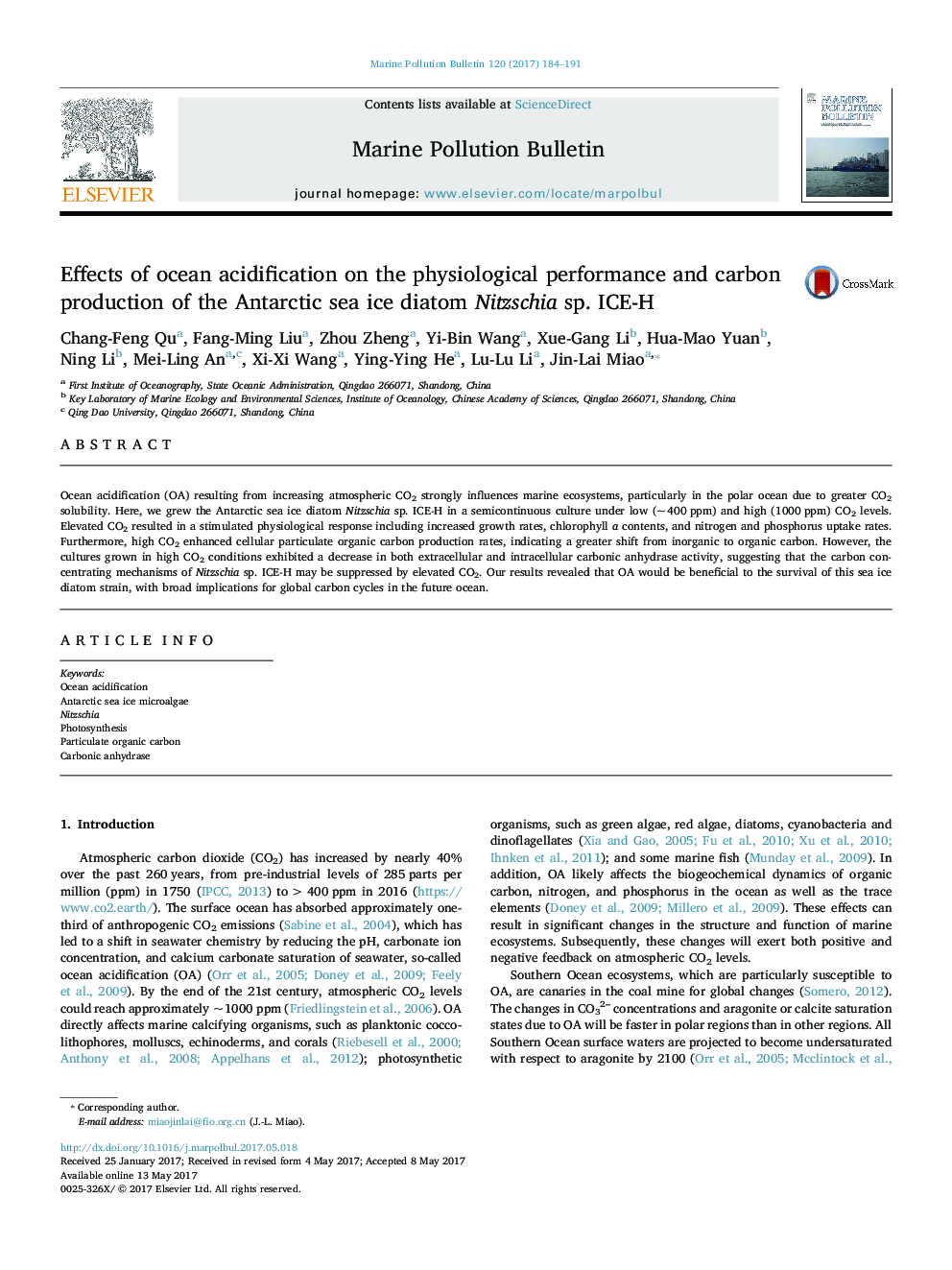| Article ID | Journal | Published Year | Pages | File Type |
|---|---|---|---|---|
| 5757661 | Marine Pollution Bulletin | 2017 | 8 Pages |
â¢The Antarctic sea ice diatom Nitzschia sp. ICE-H grew in semicontinuous cultures.â¢The growth, chl a, and nutrient uptake of Nitzschia were increased by high CO2.â¢The culture in elevated CO2 led to a decrease in carbonic anhydrase activity.â¢Ocean acidification enhanced particulate organic carbon production of Nitzschia.
Ocean acidification (OA) resulting from increasing atmospheric CO2 strongly influences marine ecosystems, particularly in the polar ocean due to greater CO2 solubility. Here, we grew the Antarctic sea ice diatom Nitzschia sp. ICE-H in a semicontinuous culture under low (~Â 400Â ppm) and high (1000Â ppm) CO2 levels. Elevated CO2 resulted in a stimulated physiological response including increased growth rates, chlorophyll a contents, and nitrogen and phosphorus uptake rates. Furthermore, high CO2 enhanced cellular particulate organic carbon production rates, indicating a greater shift from inorganic to organic carbon. However, the cultures grown in high CO2 conditions exhibited a decrease in both extracellular and intracellular carbonic anhydrase activity, suggesting that the carbon concentrating mechanisms of Nitzschia sp. ICE-H may be suppressed by elevated CO2. Our results revealed that OA would be beneficial to the survival of this sea ice diatom strain, with broad implications for global carbon cycles in the future ocean.
